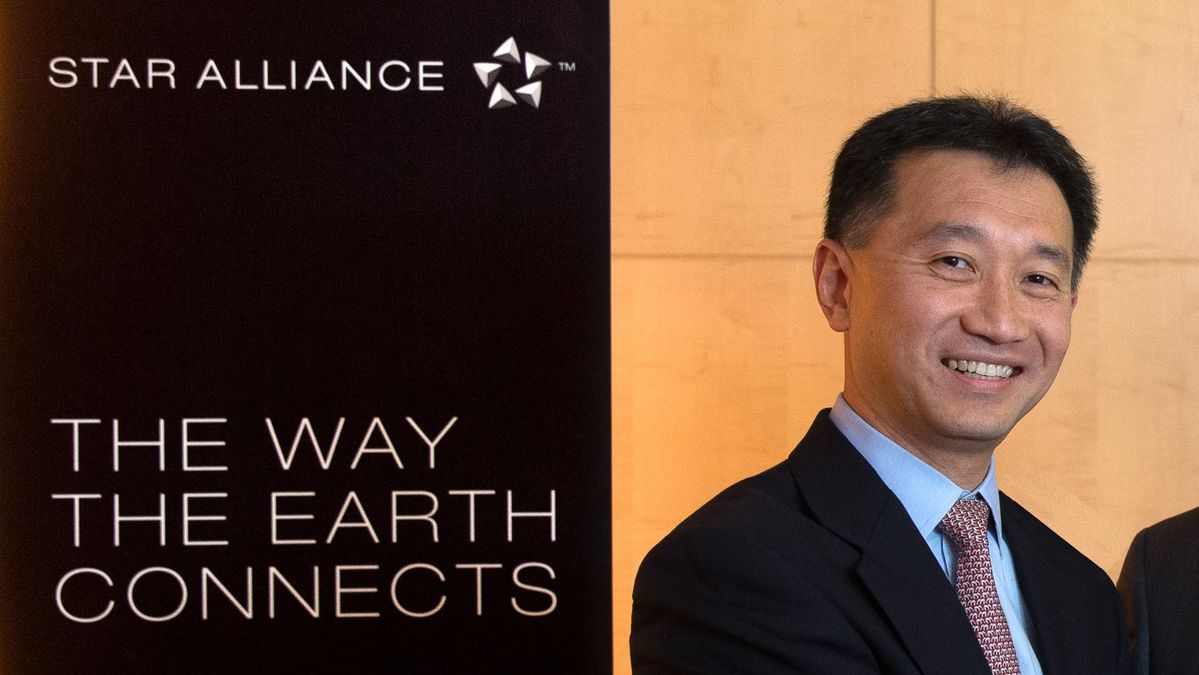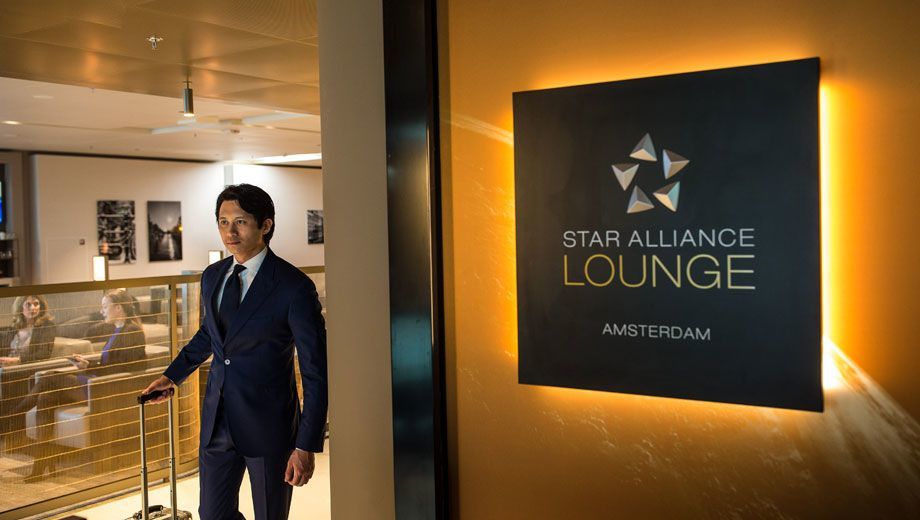Star Alliance CEO: the role of airline alliances in 2020
With most flights curtailed and some airlines grounded, Executive Traveller chats with Star's CEO Jeffrey Goh about its future.

Alliances typically support airlines and travellers by making journeys easier: whether by enforcing alliance-wide standards across airport lounge access and elite status recognition, or in the background, facilitating swift flight connections.
But in 2020 – a year in which global travel has all but ground to a halt – what role do alliances play in the current climate, and how can they still provide benefits not only to would-be passengers, but also to their struggling member airlines?
Executive Traveller recently spoke with Star Alliance CEO Jeffrey Goh to find out more.
What alliances bring to the table, when normal perks are paused
With most flights grounded and many airport lounges similarly shuttered, alliances have a new role to play in the coronavirus era.
“I think one of the most important things that we have as an alliance today is the ability to set up a platform for the exchange of information,” Goh explains, particularly to share details involving ever-changing airline schedules and networks in a straightforward way.
When those schedules do change, Star Alliance member airlines could also make requests for support from other airlines, where government regulations allow.
“Because I'm not flying to this destination anymore, how can we work together instead?” Goh gives as an example.
All Star Alliance member airlines maintain ‘interline’ agreements between each other – allowing for things such as the through-checking of baggage between flights, the issuing of onward boarding passes and integrated ticketing – but through this portal, airlines may be able to fast-track further coordination and recovery efforts, helping to get travellers to their destination despite other disruptions.
Moving beyond the coronavirus
During better times, airlines regularly share facilities like airport lounges to keep their costs in-check – relying on the lounges of partner airlines, or even the alliance itself in many airports, which can be more cost-effective than each airline operating or contracting its own facility.
Goh sees this becoming increasingly commonplace when things return to a ‘new normal’, as airlines look to conserve coin, but retain customers.
“It is times like this where I think the value of an alliance really comes to the fore,” says Goh, adding that even now, “the need to be more collective, the need to stick together and the value of exchanging lessons and information” between airlines will help the alliance community get through short-term challenges.
Read: Inside Star Alliance's Amsterdam business class lounge
Some Star Alliance airlines safe – others, not so much
As airlines work to make it through the coronavirus crisis, some carriers will find it easier than others to weather the storm, with the hardest-hit being airlines that are privately owned, and which are not offered a lifeline from their local government.
“Some of these members will need to manage very carefully and critically because if not, then I think they would be at risk,” Goh details.
“We have some members – I think it's public knowledge – that have had financial challenges in the past several years. Those are the members that we are working with or keeping a close eye on monitoring, to help them through this crisis.”
“It's hard for me to gaze into the crystal ball that doesn't exist,” Goh continues, “but I think that even if some of those members (in financial difficulty) do survive, it will be a difficult recovery for them.”
Since speaking with Executive Traveller, Star Alliance member South African Airways has been declared insolvent, with SAA set to be replaced by a new national flag carrier which may or may not remain a member of Star Alliance.
Colombia's Avianca has also entered bankruptcy proceedings, but claims its popular LifeMiles frequent flyer program is not at risk.
Star reviews alliance-wide status extensions
Recognising that travel opportunities are currently limited – and that some frequent flyers may not be able to retain their existing elite status without a helping hand – Star Alliance is considering whether to encourage all of its member airlines to enact a unified extension of points and Star Alliance Gold perks.
Some of Star’s member airlines are providing frequent flyers with an extra 6-12 months of status at the Star Alliance Silver or Star Alliance Gold tiers of their own accord, although these policies vary from one airline to the next, and many carriers are yet to show their hand.
“I think the conversation has just begun,” hints Goh, explaining that above all else, the current priority is for airlines to “keep their heads above water.”
“When there is a little bit of breathing space, I think we will begin to look at this. At the end of the day, it will be up to the individual airlines to decide what they will do. But I suspect … that almost all frequent flyer programmes are going to end up looking at these things more leniently.”
Star Alliance’s own plans deferred due to coronavirus
With other priorities to tackle in the short term, some alliance-wide initiatives previously planned for 2020 have been shelved for the time being, as Star Alliance focuses on more pressing issues.
Interconnected seat selection across the entire alliance has been halted for now: a program that would have allowed travellers to select seats on any Star Alliance flight from any Star Alliance member airline’s app and website, avoiding the need to download different apps and jump between various websites when travelling with multiple airlines.
This was due to be implemented by every Star Alliance member airline by the end of 2020, but this has been “put on the back burner for the time being,” says Goh.
The end of 2020 “was very ambitious target, but we were determined to get there, and we were confident that we could get there,” had the coronavirus crisis not impacted international travel so heavily.
Other Star Alliance projects, including the launch of ‘Digital Connection Assistant’, will also be delayed – particularly as very few passengers are taking connecting flights for the time being.
“We were expecting to launch that in London Heathrow already at the beginning of March … but right now, we have no passengers connecting: so even if we did launch the product, no one is going to be using it,” Goh explains.
As to when Star Alliance gets these plans back on-track, and international travel returns to something of a new normal, only time will tell.
Also read: Behind the scenes at Star Alliance's Connection Centre
Additional reporting by David Flynn.


Virgin Australia - Velocity Rewards
22 Aug 2013
Total posts 172
Lol. First thing I ever do when I see *A in an ET headline is scan for any mention of VA. A man can dream :)
Qantas - Qantas Frequent Flyer
04 Nov 2017
Total posts 330
Chance of that happening would be very little to none while VAH are in administration.
It'll be years off at the soonest (if at all), and if it's one of the Skyteam (or LCC) consortiums getting the nod from the administrators, then the final nail can be put into the *A ship for the VAH successor.
Virgin Australia - Velocity Rewards
22 Aug 2013
Total posts 172
But if it's Australian non-LCC consortium or Temasek (which I know is a very long shot) then it just may be feasible in the long term. I agree it's a nigh on impossible dream, but dream I shall
Qantas - Qantas Frequent Flyer
04 Nov 2017
Total posts 330
Another question is whether Alliances may even be relevant in its current form in the post Corona world?
FSC Alliances were on the decline prior to COVID (Just as many leavers than joiners), and some airlines not getting along in the same alliance (e.g QF and QR). Another question would be will post-COVID get (whats remaining) of the airlines in each alliance, putting away any differences (if any) and working together?
Qantas - Qantas Frequent Flyer
14 Sep 2012
Total posts 382
Other than some frequent flyer perks and lounges, all these alliances are marketing fluff from the late 1990's.
03 Jun 2019
Total posts 31
Don't think alliance members will put away their differences as they are fighting for their own survival. The concept of airline alliance is no longer that attractive nowadays.
15 May 2020
Total posts 1
Storing over 100 A380 aircraft is a huge maintenance burden. Every 3 months you have to fly them or do a complete gear swing, every month you have to run all 4 engines , fuel tanks have to be treated for bacterial growth and monitored and all the wheels need rotating every month . Every tow requires AIRBUS approval. That is just the basics. I can`t see EK storing them for long if they have no plans to use them in the future.
Hi Guest, join in the discussion on Star Alliance CEO: the role of airline alliances in 2020